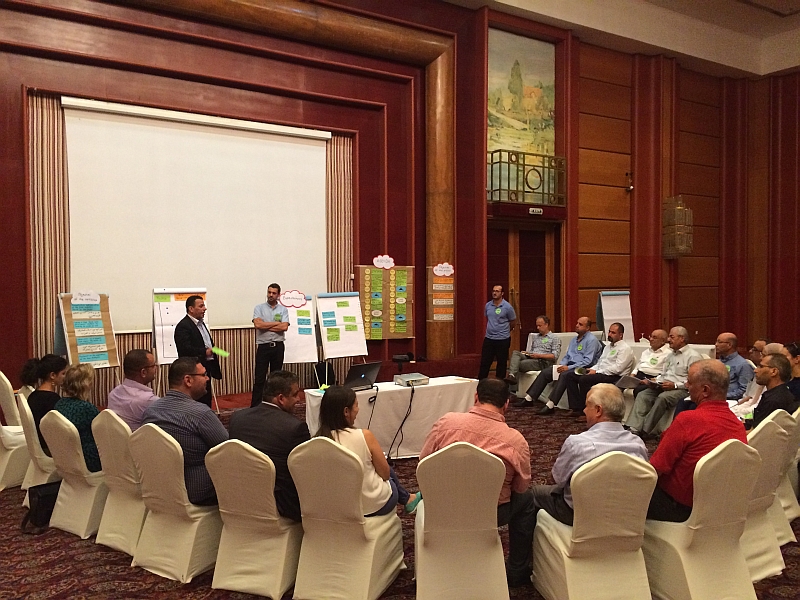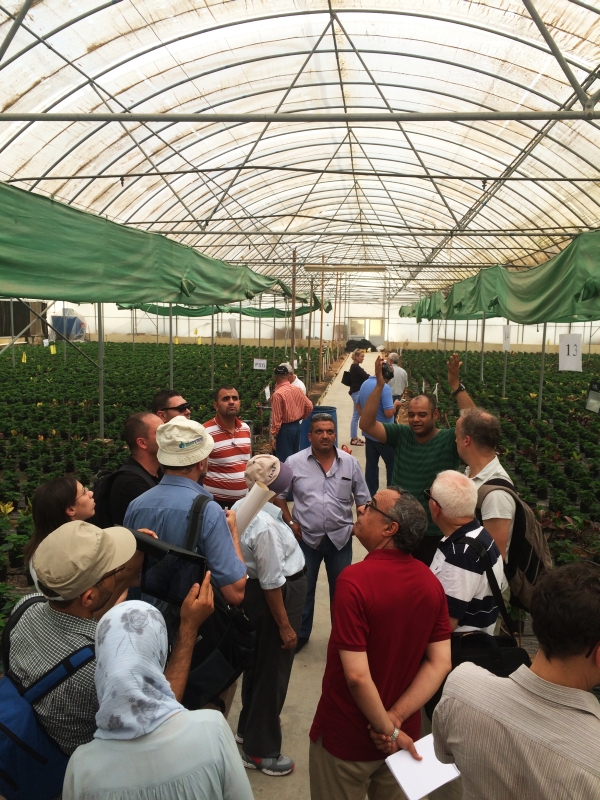The International Water Management Institute (IWMI) convened 20 participants in Cairo in September 2015 to attend a regional dialogue organised as part of the USAID-funded project on groundwater governance in the Arab World. The objective of this Regional Dialogue was to jointly address the challenges posed by the unsustainable use of groundwater in a systematic way. It drew from the necessity to take stock of past experiences in groundwater governance at the regional and local level, reflecting on existing laws, regulations, community-based actions, and institutional structures, as well as their efficacy in controlling access, abstraction and allocation of the resource under varying circumstances. The Dialogue also constituted an occasions of assemble and share the knowledge collected at various scales by the team of researchers participating in the project and used as the basis for supporting policy discussions and the development of future action plans to curb groundwater over-abstraction in Tunisia, Lebanon, and Jordan.

The Regional dialogue aimed to provide new insights and analytical frameworks on groundwater governance to a multi-disciplinary group of participants (officials, researchers, practitioners, and stakeholders), bringing international examples to the table in order to raise awareness and develop a better understanding of the large variety of existing governance and management options. This reflective exercise aimed at finding the social, policy, and institutional innovations and mitigation measures to the groundwater crisis in the region (what may -or will not, work, where and why) as part of a regional initiative across the MENA region.
 The format of this Regional Dialogue demanded an active participation of the attendees. Through innovative and thought-provoking social learning exercises aimed at exposing the participants to new realities and thinking possibilities. The participants were pushed to intervene and actively take part in the contents and discussions that arose during the dialogue via a series of methods (e.g. ice-breaker social game, personal presentations, work in groups). The reduced size of the group allowed for all participants to intervene and also converse with each other during the three days of the event. During three days, the dialogue fostered new knowledge and thinking on groundwater over abstraction, regulation, and governance in the Arab World. The methodology followed during the dialogue also emphasized on the transparency of the objectives of the event, trying to match the goals of the participants with those of the event itself. The participants were allowed to position themselves regarding their own goals, expectations, and also expertise of each participant. The group was able to appreciate and appraise the different backgrounds, experiences, and also professional identities of each one of the participants.
The format of this Regional Dialogue demanded an active participation of the attendees. Through innovative and thought-provoking social learning exercises aimed at exposing the participants to new realities and thinking possibilities. The participants were pushed to intervene and actively take part in the contents and discussions that arose during the dialogue via a series of methods (e.g. ice-breaker social game, personal presentations, work in groups). The reduced size of the group allowed for all participants to intervene and also converse with each other during the three days of the event. During three days, the dialogue fostered new knowledge and thinking on groundwater over abstraction, regulation, and governance in the Arab World. The methodology followed during the dialogue also emphasized on the transparency of the objectives of the event, trying to match the goals of the participants with those of the event itself. The participants were allowed to position themselves regarding their own goals, expectations, and also expertise of each participant. The group was able to appreciate and appraise the different backgrounds, experiences, and also professional identities of each one of the participants.





